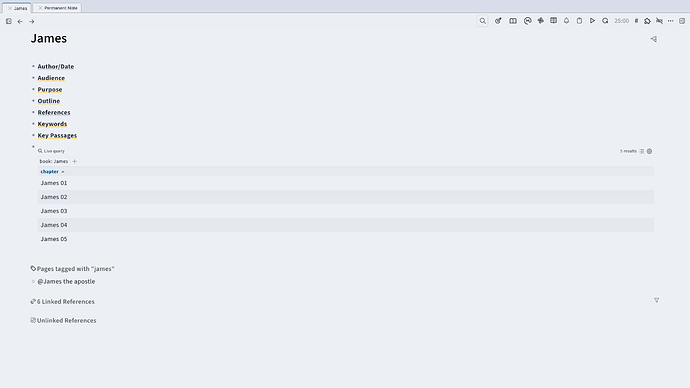Hi, there! I’m relatively new to Logseq and absorbing as much as I can. I use it primarily for Bible Study, and while it was fairly easy and frictionless to get started, I’m now running into issues and unclear of how to move forward. Hoping there are some best practices this group can suggest to help me get over the current hump.
I know there are MD files I can download to import the entire Bible into Logseq. I’ve opted to manually type verses in and slowly build my database over time as I study. This has worked really well. Typing the verses helps me internalize what I’m reading a bit better.
The issue I’m running into, however, is when it comes to proper names and book names (i.e., Matthew, Mark, Luke, John, Titus, Philemon, James). I also run into issues when there are multiple individuals who share the same name. So it’s possible to have a Book, Individual 1 and Individual 2 all have the same name.
At first, I tried creating aliases, but this only works if no one shares the same name. “James” is listed as the page name for the Book of James and for each person who has the name James in the Bible. Not to mention, it clutters up the graph. Aliases were a quick dead end.
I tried using the namespace feature, but this gets clunky. “Bible/New Testament/James/James 1” and “Apostle/James” and “Apostle/James son of Alpheus” becomes difficult to manage and difficult to see in graph form.
It feels like I’m overcomplicating this or overlooking something, but for the life of me, I cannot land on a more elegant solution.
Any suggestions are welcome!
Really appreciate the help!
